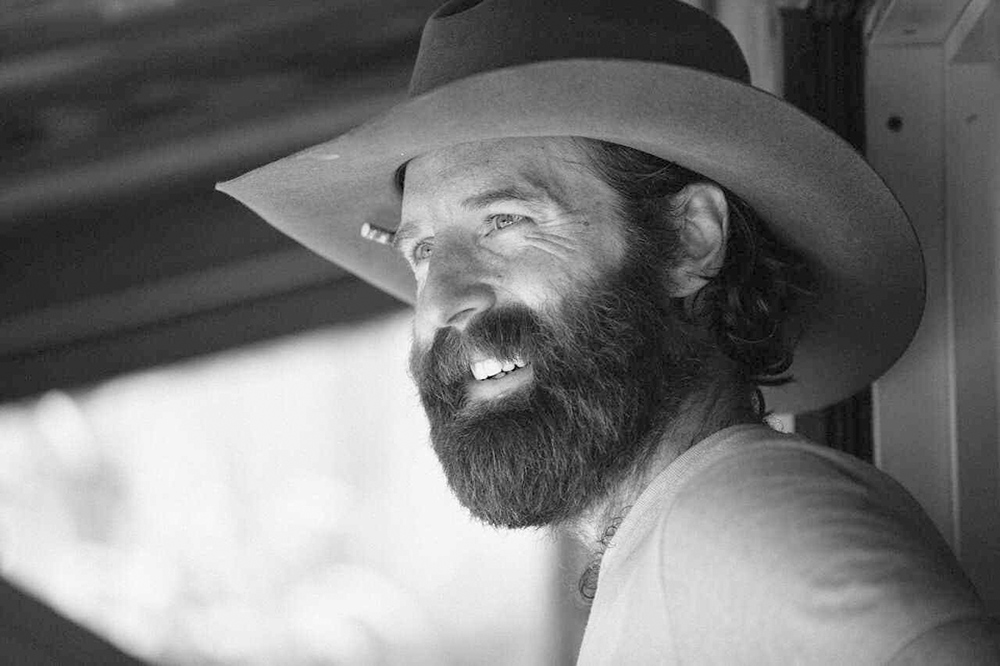By SEAN DIETRICH
The email on my screen reads:
“Dear Sean, my oldest grandchild, Bryson, is 11 years old and was diagnosed with Burkitt lymphoma, stage three, just one day before he started sixth grade.
“This cancer covered ninety percent of his body, and after four terrifying chemo rounds the cancer is dying. But this type is so aggressive that if there is one cell left it could cover his whole body in a few days again.
“He is the sweetest and most fun guy, but I’ve seen his smile fade. His spirit is sinking and he has indicated he doesn’t want to go through this anymore. We tell him to keep fighting. What words can you, a stranger, say to help him get through this?”
Dear Bryson, I was ten years old when I first met a boy named Darren Wilkinson in Boy Scouts. He was smaller than the other boys. Everyone always thought he was my little brother because he was so tiny and frail.
Frail he might have been. But Darren was no shrinking violet. Ask anyone. Darren had the personality of a junkyard Rottweiler.
Darren was born prematurely with an array of cardiac problems and physical maladies most could never endure.
Darren had undergone multiple surgeries. He bore a five-inch scar on his sternum which he would gladly show you for a quarter. The scar on his upper thigh would cost you a buck.
He was born with only four fingers on his right hand, no thumb—surgeons later reattached another finger as a makeshift thumb. His knees didn’t work right. He had diabetes. He was partially deaf.
Whenever he exerted himself during baseball practice, he had trouble breathing and his lips would turn blue. And once, during recess, after overdoing it, he almost went into a coma.
Darren’s father always carried a small cooler of medication and gave Darren injections every few hours. We boys were often reminded by our mothers and teachers that without those injections Darren could die.
Still, the kid had a world-class sense of humor. He was not embarrassed, for example, about getting jabbed with a syringe in public. He even made jokes about it.
I remember at one Boy Scout meeting Darren pulled down his undershorts while everyone was earning a knot-tying merit badge.
With his little white butt exposed to the world, Darren shouted, “Daddy! It’s time for my shot!”
And we all howled.
My most vivid memory of Darren happened at the obstacle course in Boy Scout camp.
The course was a complex gauntlet designed to test the mettle of all fifth-grade men. I suppose the challenge was intended to teach us trust, or teamwork, or something like that.
Instead, it taught us that whenever Bobby Felder got his shoes stuck in the rope net it was scientifically possible to laugh so hard that Coke would spew from your nasal passages.
Darren, however, took the obstacle course very seriously.
One year Darren proclaimed to all within earshot that he was going to win the whole obstacle-course race. He invited all critics and doubters to kiss his injection site.
Thus, one fateful afternoon, after the rest of us struggled to muscle our chubby little bodies through the complicated course, it was Darren’s turn.
We all held our breath.
Darren charged through the first half of the challenge like a miniature Hereford bull. We watched as he made his way past the ladder climb, the tunnel crawl, and the low hurdles.
But when he got to the tightrope walk, you could tell he was fading fast.
The tightrope was the hardest section, by far. It was a collection of steel cables strung from utility poles, suspended thirty feet off the ground. It was commonly referred to as the place where tenderfoots go to die.
We scouts stood miles beneath Darren, watching him get harnessed up. He was already fighting to catch his breath, clutching his chest, and wheezing.
“He’s never gonna make it,” whispered Dudley Jensen.
“He looks like he’s gonna faint,” said another.
His father tried to talk him out of going any farther, but Darren shoved his father aside and said, “I CAN DO THIS!”
Halfway through the tightrope walk, Darren lost his balance and fell. The safety harness broke his freefall, but it almost snapped his neck. I will never forget the sight of his tiny body dangling like a yo-yo.
Darren’s father ran to him. He unhooked his son’s harness and held him tightly. Everyone gathered around to discover that Darren could hardly speak. Also, he was crying.
And that’s when it happened.
Without wasting time, Darren’s father slung his son over his shoulders and told Darren to “hang on tight.”
Then, Darren’s father carried his son piggy-back-style through the rest of obstacle course. We all stared as one middle-aged man jogged through the zig-zag tires, leapt over hurdles, commando-crawled through mud, and scaled walls with a small ten-year-old slung across his back.
By the time Darren’s father got to the finish line we were all applauding and whistling. Darren’s father looked like he was about to suffer a stroke. And Darren was smiling.
The father-son-duo high-fived, and embraced.
“We did it,” said Darren’s old man, struggling to breathe.
“We did it,” said Darren.
I don’t know much about this life. I know even less about courage. But I know that when you can’t make it another step your Father will carry you.
